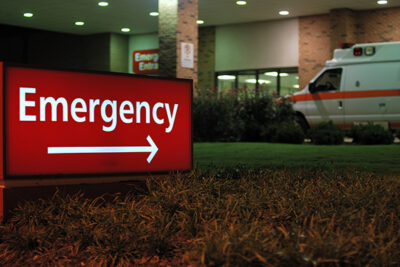By Jonathan Springston, Editor, Relias Media
The percentage of emergency medicine providers who have been attacked and injured by patients in emergency departments has risen over the past five years, according to a recent poll from the American College of Emergency Physicians (ACEP).
Two-thirds of respondents said a patient assaulted them at least once within the past year, and one-third said they had been assaulted more than once. One-third of emergency physicians who had been assaulted sustained an injury, a 6% increase over 2018 (the last time ACEP conducted a similar survey).
Almost all reported assaults were perpetrated by patients, many of whom were under the influence of drugs or alcohol or were considered psychiatric cases. Thirty-one percent of assaults were carried out by friends or family of patients. Most of the assaults were verbal with threats of violence. There were serious physical types, too, including punching (25%), kicking (26%), and hits/slaps (40%).
Survey respondents indicated they work in cultures where those who are assaulted either do not report the event or are discouraged to do so. If administrators or security respond at all, survey respondents described it as minimal (e.g., a note in the patient’s chart, escorting the assailant off property). But there seems to be little real punitive action (e.g., jail time, monetary fines, department bans) that could serve as meaningful deterrents.
Many survey respondents blamed the COVID-19 pandemic for exacerbating problems. Two-thirds blamed the pandemic for the rise in emergency department violence, and 69% said the pandemic eroded the trust between patients and care providers. All of this has led to longer wait times, a rise in the leave without being seen rates, less productivity, more burnout, and more anxiety.
“Inadequate protections for emergency medical professionals and staff and patients, combined with insufficient accountability from hospitals, communities, and assailants, can only encourage violence to continue,” said ACEP President-Elect Chris Kang, MD, FACEP, FAWM. “We must do more to make sure that physicians and staff can perform their duties without needing to worry about threats to their wellbeing or safety.”
For more on this and related subjects, be sure to read the latest issues of ED Management, Healthcare Risk Management, and Hospital Employee Health.

